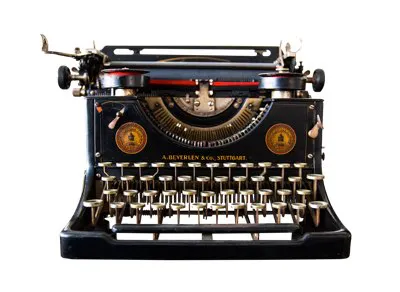
We all know that things have really changed since the days of a writer sitting down to pound out the Great American Novel on a typewriter. Writing, publishing, printing, promoting, and selling books is nothing like what it used to be.
I feel fortunate. My writing has been published in newspapers, magazines, as copy for television documentaries and radio programs, and in books, including an anthology of short stories. My published books have included a fully illustrated children’s book, an award-winning murder mystery, and a nonfiction paperback used by hospitals, hospice workers, and families as a source of comfort during end-of-life illnesses and grief.
My books have been both self-published and published by traditional (commercial) publishers. Every experience has been unique, and each came with its own set of pros and cons.
The Advantages of a Traditional Publisher
Obviously, if you are lucky enough to have an established, reputable publisher who wants to publish your book, I say go for it. Or, at least seriously consider it. They will do much of the work that you would, otherwise, end up doing yourself. They help with promotion, and there should be no publishing costs involved to you. I have made money on my books, which were published through traditional publishers, and my experiences were professional and rewarding.
Why, You Might Ask, Did I Ever Self-Publish Then?
Simple. Because not every book I write will necessarily interest a major publisher. Some books are “niche” books. Or, in the case of my 42-page book, When Someone You Love is Dying: Some Thoughts to Help You Through, I knew the shorter length might be less appealing to a publisher. One publisher I spoke with was interested, but suggested I could “pad” it by breaking up the verses into several smaller bits, thus creating more pages. Though that might work for another book, I didn’t want to do it for this one.
Another reason I self-published: I wanted to complete this book quicker than the two years it can take for many traditionally published books to get to market.
In the case of this particular book, When Someone You Love Is Dying, however, there was another compelling reason for me to self-publish: I wanted to retain design and content control. The concept and text were entirely mine, and I had selected the photographs specifically to accompany each verse.
Most importantly, the passion for doing this book—intended to help others going through what I had experienced with the death of my husband—was mine. I knew that When Someone You Love Is Dying worked just the way it was, and I did not want someone making significant changes to it. (Of course, outside input can sometimes be very valuable.)
That is the real beauty of self-publishing. For better or for worse, you have the power to bring your book to market exactly as you want it to be.
Some Disadvantages of a Traditional Publisher
They will often (and most probably) control both the final title and cover choice. Yes, that’s right. If you are in love with your title or cover image, unless you have this in your contract it might be their choice, not yours. And it will be based upon what the publisher thinks will sell.
Now, that’s not necessarily bad because we all want to make money with our books and see them sell, right? And, who knows, the publisher might even come up with a better idea than the one you had. But . . . not always. I have seen book titles and cover images that made the authors want to chuck their beloved tomes in the trash.
On the other hand, you might just suck it up and consider it the price you pay for getting a publisher to take on your book. As long as you know that up front, it’s fine. But it is worth asking if you are in negotiations with a publisher so that it doesn’t come as a nasty surprise.
If you are fortunate enough to have a publisher or literary agent offer you a contract, I strongly suggest you have an attorney who specializes in intellectual property rights review it before agreeing to anything.
I repeat: have an attorney in the field of such contracts go over it for you. It might be the best spent couple of hundred dollars (if it even costs that much) you will ever spend.
I once had an agent send me a contract where, in effect, if I had signed it unchanged, he would have ended up owning the copyright to my manuscript! As it turned out, I needed the services of an attorney to protect me from the very person who was supposed to be working on my behalf. Please do not let your excitement of a contract override your common sense. This is a business deal. As in any field, not everyone out there is honest or ethical, and it is up to you to protect yourself and your interests.
How much will the publisher actually help with promotion? Again, worth asking. We often imagine that a publisher will book us on a cross-country tour which will begin as the guest author on Oprah. Not quite. Unless you are an established, well-known author, you might find that it’s pretty much up to you. They will have your book in certain catalogs and online (I would hope), but the individual promotion will still probably be largely up to you. At least, that’s my experience. And, it’s fair. Major publishers often do not have the time or resources to invest in an unproven author.
Again, it is important to keep your feet on the ground, ask questions, and be prepared to do a lot of work yourself even with a traditional publisher.
I have seen friends be very disappointed when, even though the first edition of their book sold several thousand copies (or even sold out the entire first run), the publisher did not do a second run. Why? Because many commercial publishers need “new blood” and fresh product every year. So, even a successful book can go out of print quickly.
I know an author who, when she got the rights back to her out-of-print book, went ahead and self-published the same book herself that had been previously published by one of the largest publishers in the country. This way, she made sure her book stayed in print and remained available for sale. That is another reason for self-publishing.
One major disadvantage regarding traditional publishing houses is obvious: how do you even get them to look at your work without an “in” of some kind?
For some time now, many publishing houses no longer accept outside submissions and will only consider manuscripts submitted through trusted literary agents. As frustrating as this is for a writer, I can see their point to a degree. They do not have the time to slog through the mountains of manuscripts with which they would be inundated. Additionally, the agents they have relationships with know what they are looking for, and which authors would be the best “fit” for their company.
Before self-publishing existed as an option, I remember the days when the only way an author could ever hope to see their work in print was if they:
- Managed somehow to get a literary agent (very difficult to do);
- That agent worked their butt off to get the author’s work under the nose of a publishing house who “bit” and offered a contract;
- The contract negotiations did not hit a major snag;
- The author did not freak out and hate every single change suggested by the editor(s) assigned to his/her manuscript;
- The book actually made it through the process and saw the light of day as a published work.
That said, there is now an opportunity, which has never existed prior to POD (Publish on Demand) and the worldwide web, to bring our writing to life as well as sell it to the public.
I firmly believe that there can never be enough good books out there, and that everyone truly does have a story inside them waiting to be told, and I am very grateful for the tools we writers now have. It is up to us to use these tools wisely.


